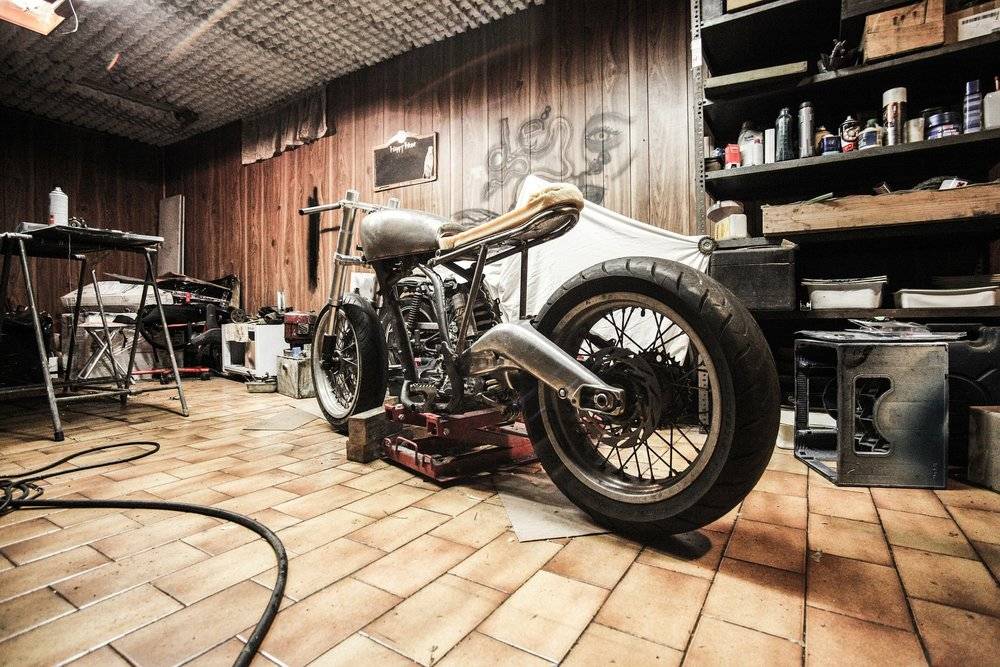Bespoke manufacturing: How custom manufacturing works
Bespoke is a term appearing in several industries. But what is bespoke manufacturing and how can a modern manufacturer benefit from custom manufacturing?
Team Katana

Bespoke was mainly used by tailors. However, as other industries have now started producing their own customizable wares, they too have adopted the word. For example, bespoke manufacturing.
As we have explored in the past, the scale of the manufacturing industry is massive.
Not only is the manufacturing industry diverse. But because some manufacturers run a similar business, it doesn’t necessarily mean they’ll produce their wares using the same methods.
We’ve looked at the different types of manufacturing processes and which is the best for small manufacturers: make to order or make to stock.
But technological advancements are making manufacturing processes cheaper and easier. Customers now have the option to have items custom-made, as opposed to buying off the shelf pre-made products.
This is how the term bespoke manufacturing was coined.
You may even recognize the word “bespoke”, as it has been used in several other areas, such as bespoke software and bespoke medicine.
Is there a link between businesses that use the term bespoke to describe themselves?
If you do see the use of bespoke by a business, it’s basically a fancy way of saying: Customizable goods or services built from a customer’s specific requirements.
So, grab your three-piece tailored suit, start-up your custom-made Harley, and hold the kid’s macaroni pictures close to your heart because we’re about to dive into the world of bespoke manufacturing.
Let’s begin.
What Is Bespoke Manufacturing?
Bespoke manufacturing means a business that provides a customized product or service, in accordance with a customer’s specifications.
The reason companies have started to adopt the word is because the bespoke definition is to “speak for something.” To be more specific, it means “to give an order for it to be made.”
So, applying the meaning of bespoke to your business would indicate that you are a company that is going to provide your customers with the option for customization.
The word originates from the land with ambivalent feelings toward Marmite, the United Kingdom. But it has deeper connotations to tailors who make suits for customers based on their measurements, which would be a bespoke suit.
There is actually a dispute about whether or not a business has the right to use the word when describing their bespoke products or bespoke services, as this discussion in GQ on bespoke cocktails details.
Though we must agree with GQ here, what the heck is a bespoke cocktail? Do you place your order and then spend the next few months waiting for your drink to whirl around a distillery?
If you’re wondering if you could classify yourself as a bespoke manufacturing company, ask yourself if you make your products from scratch and specific to a customer’s order? If the answers yes, you’ve got our blessing to use the term.
Along with manufacturing, in recent years bespoke has found a home in IT, especially within the field of software development.
To make this more understandable, we’re going to take a look at a world-famous bespoke manufacturing company.
Pro tip:
You know what bespoke manufacturing is, but if you want to get a better understanding of the bigger picture, you must be sure to check out our comprehensive guide on what is manufacturing. The home of manufacturing knowledge.
An Example of Bespoke Manufacturing
The infamous Orange County Choppers (OCC) is a custom manufacturing business that produces motorbikes based on their client’s specifications.
It should be worth mentioning that they’re most well-known from their reality TV show American Chopper, which followed them around their workshop, showcasing their antics and their rather explosive ways of handling disagreements.
We like to imagine that Paul Sr. And Paul Jr. Are having a disagreement about if they’re a bespoke manufacturing company or a make to order business. Spoiler alert, they do custom manufacturing, meaning they’re bespoke.
Maybe you only recognize them from famous memes floating around on the internet, so let us explain who they are.
The OCC guys design and manufacture unique custom motorcycles for enthusiastic bike lovers and businesses. Their clients are mainly based in the US, but they do also ship bikes abroad.
They claim to have no limitations to what they build. They have manufactured lots of different styles and designs in the past including motorcycles, trikes, sidecars, electric driven and diesel-powered bikes.
Their tagline boasts: You Dream It, We Create It
Their customers are also kept in the loop during the process, from concept until its completion.
This actually touches on one of the biggest benefits to becoming a custom manufacturer, however, we’ll explore this a little later.
For now, the OCC is the perfect example of a business that practices bespoke manufacturing. As each bike is different and completely personalized to the client’s requests.
The bikes are built from scratch, based on a blueprint which has been designed either by the customer or by OCC staff after receiving the “wish list”.
So, for example, in season 2 the Gold Leaf Corporation commissioned OCC to build a custom bike to celebrate the 125th Anniversary of the Statue of Liberty using repurposed material from the centennial restoration of the monument.
The bike comprised of:
- A shift lever fabricated from a section of cable used to carry electricity to Miss Liberty’s Torch;
- The handlebars design were inspired by the monument’s crown;
- The front fender and rear swing arm took inspiration from the structure’s interior; and
- The DaVinci designed carburetor resembles the statue’s torch and even lights when the motorbike is running.
A legitimate one-of-a-kind motorbike.
This is obviously quite an extreme example of a product created from custom manufacturing, but it highlights the projects which a company can become involved with if they provide bespoke services.
Does this help you understand what is bespoke design? If not, drop us a comment and we’d be happy to explain more.
If you want to be a step ahead of the competition and maybe even take on the OCC, ask yourself, “How do I track my inventory and monitor a project’s progression?” Is it by spreadsheets? Or do you track inventory by eyesight?
Do you realize you could be losing revenue as both solutions are very prone to mistakes? Have you ever considering optimizing your business with mrp software?
Implementing this into your business can get you out of those growth restricting spreadsheets, get better control on your floor-level management, and not have to worry about mistakes with its smart auto-booking system for allocating materials to a project.
Why not try one out? With our 14-day free trial you’ve got nothing to lose.
But we’re going to move on and examine the benefits a small manufacturer could find if they too became a bespoke manufacturer like the fellas at the OCC (with hopefully more… composure).
Why Is It Becoming Increasingly Popular to Break into Custom Manufacturing?
Although it can produce probably some of the longest manufacturing lead times, there are a lot of benefits to reap from producing bespoke products.
Especially since technological advancements, particularly in the field of 3D printing, is allowing individuals to become manufacturers with little experience and financial backing.
There is no limit to what bespoke products a manufacturer can produce, it can be from bikes to furniture, the only limitation is a designer’s imagination… Okay, and practicality. But it seems unpoetic to mention that alongside creativity.
But the point still stands! Ideas can theoretically go straight into production. Especially since smaller companies can now do it all in-house because they have access to equipment and machinery which was traditionally owned by larger companies.
So, what are the benefits for bespoke manufacturers doing it all in-house?
Flexibility
You don’t have to wait for your items to arrive from Timbuktu or contact another business even further away if something needs changing. Keeping it “homegrown” allows you to implement changes there and then.
Lower Costs
As smaller manufacturers will be producing highly customizable products and in smaller volumes, there isn’t a huge benefit for outsourcing any of your manufacturing needs unless you need to increase the volume. Meaning you save money from not having to contract other businesses.
Also, as items will be built specifically for customers, you should really have little to no product stocked, drastically reducing your carrying costs.
Customization
This is the big enchilada when it comes to custom manufacturing. Customers have the option to completely customize their order and get a totally personalized product (and experience, to be honest). This is something bigger corporations struggle to achieve, and according to our manufacturing trends and predictions, more consumers are going to seek out these options as they want a product with more… personality.
Yes, a big company could take on a specific contract and produce a customized product. However, they’re more than likely going to outsource, meaning the product will pass through different channels, increasing the likelihood of an error occurring. At least small manufacturers producing goods in-house can oversee the project from start to finish.

What is bespoke design? It used to be in the past that you could buy a bespoke suit. But, with the manufacturing industry maturing you can get almost any bespoke product. Bespoke design is an item that is designed and built from scratch for a customer.
So, there you have it, the ins-and-outs of bespoke manufacturing. You now have a fancy term to use in conversations when talking about customizable goods.
But, let’s say you want to become the next OCC, you not only now know what to call yourself, but what you need to do to become a custom manufacturing business.
However, if you’re still a bit nervous or you’re already a bespoke manufacturer but it hasn’t been going well so far, we’re going to give you one final and important tip.
Get yourself a production scheduling software, particularly designed with the small manufacturer in mind.
Our smart workshop software, Katana, supports make to order businesses and bespoke manufacturing.
You can integrate your e-commerce accounts (e.g. Shopify inventory integration) and accounting software (e.g. QuickBooks accounting integration) to manage your business all from one dashboard.
For custom manufacturers, you can generate a manufacturing order once you receive your customer’s requirements and easily monitor that project’s progress with a visually pleasing, simple to read, color-coded overview.
Look for yourself in the video below.
And that is all from us for now!
Did you find this blog useful? Comment “Bespoke” or “MTO” and let us know which workflow you use.
Good luck to any of you embarking with bespoke manufacturing, and until next time, happy manufacturing!
Team Katana
Table of contents
Get inventory trends, news, and tips every month
Get visibility over your sales and stock
Wave goodbye to uncertainty with Katana Cloud Inventory — AI-powered for total inventory control